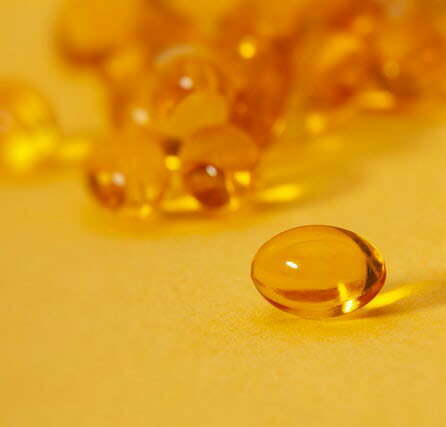Poor diet and never-ending stress result in our bodies not receiving valuable vitamins and minerals which are important for health. Moreover, some vitamins are absorbed to only a small degree, and the body eliminates them before it can take full advantage of their properties. As a result, more and more often vitamins are supplemented in liposomal form, which is much more effective.
What are liposomes?
To understand what liposomal vitamins are, it is best to start from a description of a liposome. A liposome is a water-lipid vesicle, of a diameter not larger than 1 μm, made of a lipid bi-layer. Thanks to their many beneficial properties, liposomes are broadly used in the pharmaceutical industry as a popular carrier of active substances. They frequently can provide stability to unstable pharmaceutical ingredients against pre-mature decomposition or oxidation, thus improving their absorption. In many cases, liposomes release the medicine only in the target tissue that makes the best use of its availability. If they are so effective as pharmaceutical carriers, it has been an obvious step to apply them in food products as well. Use of liposomes in the foodstuffs industry is a relatively new and still developed technology. Quite naturally, the first attempts have been made in dietary supplements, including as carriers of vitamins.
What are liposomal vitamins?
Given the unique qualities of liposomes, allowing both hydrophilic as well as hydrophobic molecules to be locked inside them, they are now used to encapsulate a whole range of vitamins – from fat-soluble vitamins A, D, E, K to water-soluble vitamin C and B-group vitamins, which are well-known to degrade when exposed to light, high temperature or the presence of oxygen. The liposome encapsulation of vitamins technology has significantly increased their stability during the manufacturing process or storage, with the primary benefit, however, of much better absorption, i.e. effectiveness.
Effectiveness of liposomal vitamins
Research shows that the most popular liposomal vitamin – vitamin C, reaches the bloodstream 77% more effectively than conventional forms of this vitamin, which means that already smaller doses guarantee absorption of the required amount of the active substance.

Vitamins
Vitamins are essential components for the proper functioning of the body. Although we obtain most of them from the beverages and foods we consume, often additional supplementation is also necessary – especially in states of illness and restrictive diets. We offer natural and synthetic vitamins with high absorbability and quality that allows for their use as additives in medicines, dietary supplements, food products, and cosmetics.
Our vitamins are certified and meet the highest quality standards, including BRCGS (GFSI), ISO9001: 2015, HACCP, HALAL, and KOSHER.
B12 is a vitamin difficult to supplement; so far its deficiency has been treated with intramuscular injections. Now, thanks to liposomal technology, it is possible to provide effective and non-invasive supplementation of methylcobalamin, which has been confirmed in clinical research. Subjects in one of these trials showed a blood concentration increase of the B12 vitamin level by the average of 270% after 2 months of supplementation in the dose of 1,000 μg daily. The research study was conducted on 53 persons of both genders, above 50 years old, non-vegetarians and showing B12 vitamin deficiency.
Other applications of liposomes
The new area of focus is supplementation of minerals, such as zinc or iron, as well as other active substances, such as melatonin or CBD, in liposomal form.
Given the many advantages and flexibility of liposome encapsulation technology, it is fair to expect an increase in popularity of food products containing liposomal substances, as well as a growing choice of substances available in this form.
Bibliography:
– Chapter 8 – Progress in Applications of Liposomes in Food Systems W. Liu, A. Ye, H. Singh
– Evaluation and Clinical Comparison Studies on Liposomal and Non-Liposomal Ascorbic Acid (Vitamin C) and their Enhanced Bioavailability – S. Gopi & P. Balakrishnan
– Evaluation of liposomal B12 supplementation in a case series study – I. Katsogiannis, N. Fikioris, C. Kontogiorgis, T. Constantinides


